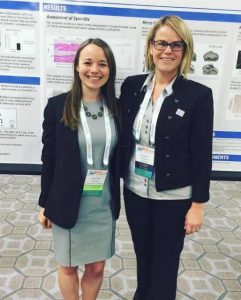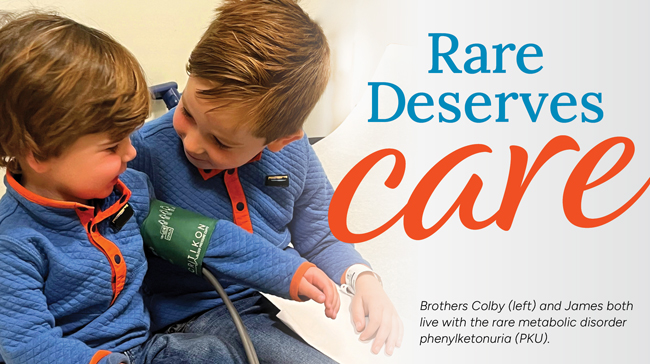NORD’s Educational Initiatives team spoke with Jennifer Shoskes, a Northeastern University graduate student and NORD Student Chapter Leader. In this interview, Jennifer talks about her inspiration for starting a NORD Student Chapter and where she hopes to see her career go working within the rare disease community.
For more information on NORD’s student programs, click here.
1.Tell us a little bit about yourself! Where are you from? Where did you attend undergrad and what did you study? Where are you now and what are you studying?

I am from Cleveland, OH, but attend Northeastern University in Boston for my combined undergrad/graduate Pharmacy degree. I am now in my 6th and final year of pharmacy school and excited to graduate in May
2.Where did your interest in rare diseases come from?
I actually have several connections to rare diseases, but my interest in advocacy and exposure to NORD grew from working at Alnylam Pharmaceuticals.
Alnylam is a biotech company in Cambridge that focuses on developing therapeutics for several rare disorders and they frequently brought in patients to share their experiences. Hearing first-hand about the complicated pathways to diagnosis and the daily struggles patients and families face really inspired me, both to work harder to develop new therapies and to inform others about rare diseases to try to decrease some of the hardships. I also have a rare disease called Legg Calve Perthes, which is a pediatric hip disorder caused by disruption of blood flow to the head of the femur. I was diagnosed when I was around 6 years old with very limited mobility of my hip, but I was incredibly lucky, and my symptoms resolved almost entirely by my late teens. At the time, I did not realize the disease was actually classified as rare, and it was only after I started the NORD chapter at Northeastern and saw the Perthes Foundation on the NORD website that I realized.
3.Why did you decide to join/start a NORD Chapter?
I was very moved after hearing from rare disease patients and eventually learned about NORD through patient advocacy groups. I wanted to promote the education of rare diseases and their associated complications, and what better audience than college students? Our goal isn’t to learn about all 7,000+ rare diseases, but rather try to understand what patients and families with rare diseases go through and how you may be able to support them. Having a NORD chapter provided the opportunity to raise awareness of rare disorders early on and support students affected by rare diseases. I’ve been surprised and amazed at the response at Northeastern; even though individual rare diseases are not common, so many students have come forward to share their stories and so many others have not been personally affected but found a passion for rare diseases through the group.
4.You attended NORD’s Rare Summit in Washington, D.C. this October. What was your experience like? What was your biggest take away?
This was my 2nd year attending the NORD Summit and this year’s speakers and panels were fantastic! Bringing together patients and families with members of industry and the FDA is such a unique opportunity, and the environment was incredibly collaborative. Hearing the progress, concerns, and challenges directly from these key stakeholders gives you an incredible perspective. My biggest takeaway was the sense of urgency from all the attendees. Patients, families, and industry want to do everything possible to get closer to finding treatments or even cures and are willing to work tirelessly to get closer to this.
5.What do you hope to do in your career relating to rare disease?
After I graduate, I hope to work at a rare disease-focused biotech or pharmaceutical company, helping to develop clinical trials. As evident from the conference, there is a huge need to advance therapeutics for rare diseases, and I would love to be able to contribute to this.
6.What do you see as the biggest challenge for rare patients in regards to pharmacy?
Rare disease patients are often managed on less common drugs, many of which are very expensive or need special insurance clearance. Community pharmacists can play a huge role in assisting these patients with ensuring access to their necessary medications and managing their prescriptions to minimize patient burden.
7.What would you say to other students who are interested in rare diseases?
Capitalize on your strengths to raise awareness, education, and funds for rare disorders. There are so many opportunities to help patients and organizations, and their needs are diverse. We need people in every field to start normalizing rare disorders, and with this education will come awareness and new collaborations, hopefully leading to better treatment of rare diseases. You can have an impact!




